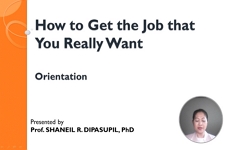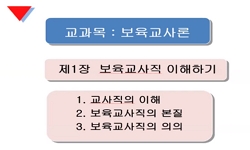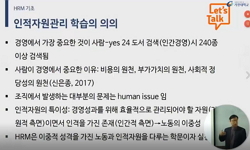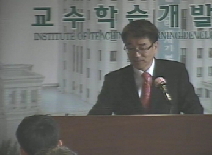본 논문은 조직에서 사회적 교환이 계속적으로 유지되기 위해서, 수용자의 능력이 중요한 역할을 할 것으로 가정하고, 이를 증명하기 위해 연구하였다. 구체적으로, 사회적 교환이 수용자의...
http://chineseinput.net/에서 pinyin(병음)방식으로 중국어를 변환할 수 있습니다.
변환된 중국어를 복사하여 사용하시면 됩니다.
- 中文 을 입력하시려면 zhongwen을 입력하시고 space를누르시면됩니다.
- 北京 을 입력하시려면 beijing을 입력하시고 space를 누르시면 됩니다.
https://www.riss.kr/link?id=A82533495
- 저자
- 발행기관
- 학술지명
- 권호사항
-
발행연도
2010
-
작성언어
-
- 주제어
-
KDC
325
-
자료형태
학술저널
- 발행기관 URL
-
수록면
1-30(30쪽)
- 제공처
-
0
상세조회 -
0
다운로드
부가정보
국문 초록 (Abstract)
본 논문은 조직에서 사회적 교환이 계속적으로 유지되기 위해서, 수용자의 능력이 중요한 역할을 할 것으로 가정하고, 이를 증명하기 위해 연구하였다. 구체적으로, 사회적 교환이 수용자의 능력인 행동의 자주관리에 미치는 영향과 행동의 자주관리가 성과에 미치는 영향, 그리고 행동의 자주관리가 매개효과를 발생시키는지 연구한 것이다. 연구자료는 경상북도와 경상남도에 위치한 기업을 대상으로 최고경영자의 양해를 구해 각 부서의 부서장이 부하와 직속상관에 대한 목록을 작성하여 수집했다. 총 배부된 설문지는 800부이고, 분석에 사용된 설문지는 610부이다. 구조방정식 모형을 사용하여 자료를 분석한 결과, 사회적 교환이 수용자의 능력인 행동의 자주관리에 정(+)의 영향을 주는 것으로 나타났다. 또한 행동의 자주관리가 조직의 성과변수인 직무만족, 조직몰입, 조직시민행동, 직무성과에 정(+)의 영향을 미치는 것으로 확인되었다. 사회적 교환은 대체로 조직의 성과에 직접적인 영향을 주지 않는 것으로 나타났으며, 행동의 자주관리를 매개로 하여 간접적으로 조직의 성과에 영향을 미치는 것으로 검증되었다. 이러한 연구결과를 바탕으로 연구의 시사점, 한계 및 추후연구 과제에 대해 논의하였다.
다국어 초록 (Multilingual Abstract)
Social exchange theory suggests that employees and their supervisors and organizations build social exchange relationships (i.e., supervisory and organizational social exchange, respectively) within which both parties continuously exchange socio-emoti...
Social exchange theory suggests that employees and their supervisors and organizations build social exchange relationships (i.e., supervisory and organizational social exchange, respectively) within which both parties continuously exchange socio-emotional benefits such as recognition and esteem (Cropanzano & Mitchell, 2005; Rupp & Cropanzano, 2002). Social exchange relationships are different from purely economic exchange relationships in that the obligations of the both parties in social exchange are unspecified. The open-ended obligations strengthen bonds of indebtedness and trust which trigger one exchange party to become committed to
the other (Blau, 1964). As a result, employees in social exchange relationships tend to form a high degree of trust, a high level of investment and obligation, and a long-term orientation relationship with their supervisors and organizations (Rupp & Cropanzano, 2002; Shore, Tetrick, Lynch, & Barksdale, 2006). In addition,
employees who enjoy the goodwill and caring of an organization will feel obligated to reciprocate with positive behaviors toward the supervisors and organizations. Current social exchange studies have contributed to enhance our understanding about the effects of social exchange relationships on employee outcomes. However, they paid little attention to examining how social exchange relationships influence employees’ intentions or abilities to reciprocate with behaviors and attitudes that benefit the supervisors and organization. Supervisory and organizational social exchange can be maintained if the receiver who gets the benefits (e.g., employees) can provide some intangible socio-emotional resources to the giver (e.g., supervisors or organizations), if the receiver harms the giver, the social exchange relationship can be broken (Gouldner, 1960). In general, the receivers in social exchange relationship are willing to improve their ability to benefit the giver because they would not like to break the trust with the giver and feel obligation to benefit the giver. In this study, we examined how supervisory and organizational social exchange influenced the receivers (i.e., employees)' behavioral self-management (i.e., ability) and how employees’ behavioral self-management affected their work attitudes and behaviors. We collected the data from three organizations in Republic of Korea (i.e., one air
manufacturing, one hotel, and one telecommunication company). In the survey, employees assessed supervisory and organizational social exchange, their behavioral self-management, job satisfaction and organizational commitment. Supervisors reported their subordinates’ job performance and organizational citizenship behavior. We distributed 500 employee-supervisor pair surveys. Of 351 surveys collected (i.e., response rate = 70.2 %), we deleted 34 ones due to errors and missing values. The reliabilities of all the measures are great. The average of supervisory and organizational social exchange was 4.43 and 4.53, respectively, which is not high on a 7-point Likert-type scale. As expected supervisory and organizational social exchange significantly correlated with employees’ behavioral self-management. To test the research hypotheses, we used structural equation modeling and tested the mediation effects using Sobel (1982)’s test. Results revealed the positive effects of supervisory and organizational social exchange on employee’s behavioral self-management. Employees’ behavioral self-management was also significantly associated with their job satisfaction, organizational commitment, organizational citizenship behavior, and job performance. In addition, supervisory and organizational social exchange influenced employee outcomes (i. e., job satisfaction, organizational commitment, organizational citizenship behavior, and job performance) indirectly through employees’ behavioral
self-management.
목차 (Table of Contents)
- Ⅰ. 문제제기
- Ⅱ. 이론적 배경: 가설의 설정
- Ⅲ. 연구방법
- Ⅳ. 연구결과
- Ⅴ. 맺음말
- Ⅰ. 문제제기
- Ⅱ. 이론적 배경: 가설의 설정
- Ⅲ. 연구방법
- Ⅳ. 연구결과
- Ⅴ. 맺음말
동일학술지(권/호) 다른 논문
-
- 한국인사조직학회
- 김현동
- 2010
-
- 한국인사조직학회
- 서형도
- 2010
-
- 한국인사조직학회
- 권석균
- 2010
-
- 한국인사조직학회
- 이수정
- 2010





 스콜라
스콜라






